Masashi and I have lived in the countryside for nearly two years.
Living in a small town in the countryside vs. a big city can be very different, no matter what part of the world you are from. However, there are certainly some things that set the rural mountain villages of Japan apart from the big cities like Tokyo!
Entering a rural village can feel like stepping back in time. In many areas of Japan, farming methods haven’t changed much in a long time. Small roads make it hard to bring in a lot of machinery, and many cannot afford the cost. A lot of work is still done by hand, with farmers wading through rice fields in tall rain boots.
Farming is the life-blood of the Japanese countryside, and in our area, the community still revolves around the agricultural seasons and times of day.
Keeping Time
Everyday a loud siren goes off at 6 am, 12 pm, and 5 pm.
The alarm that echoes through the mountains (it sounds like an air-raid siren), was originally intended to tell farmers when to wake up, when to come in from the fields for lunch, and when to finish their work for the day.
Some cities in Japan also play a musical song at the end of the day, around 5 or 6 pm, but it’s rare to have an early wake-up call like is the custom in our community. Each participating city usually has a different, distinct alarm sound or song.
At first the alarm took some getting used to – and it still surprises guests that stay over! Personally I am not a fan of the 6 am alarm.. sometimes people want/need to sleep in, and not everyone has the same work schedule! However, the alarms during the day often help us not to miss mealtimes when we are working from home and don’t have a chance to look at the clock.
Communication
As some homes are far apart and the elderly may be immobile, communication is also very important to rural communities.
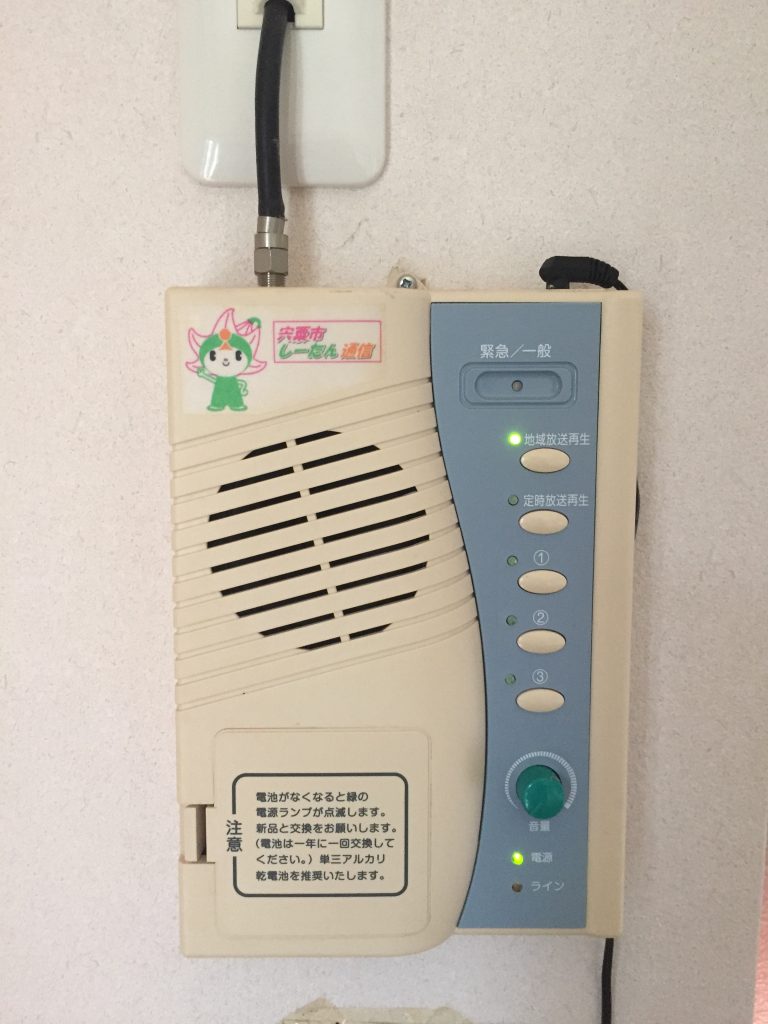
Every home in our area is equipped with a radio attached to the wall.
The radio automatically turns on and broadcasts announcements throughout the day (although you can adjust the volume with a round knob).
Announcements include warnings about dangerous weather conditions and evacuations, earthquakes, police warnings about missing persons or wildlife sightings (once a year or so a bear is spotted!), and daily reminders in the evening that kids are on their way home from school.
Even if we fail to hear radio announcements, cellphones in Japan are set to automatically go off with an alarm if there are serious weather conditions, or evacuation warnings.
This has happened even in the middle of the night during typhoons! Although cell service can be spotty in our area for many carriers, we’ve never had a problem with alarms not working.
Emergency Preparedness
Unlike in Tokyo, living in the countryside requires being more self-sufficient, and simultaneously more connected with your neighbors. If there is a disaster, you don’t know when help can arrive! In our area, the nearest hospital is also about a 40 min. drive away.
For this reason, some houses are equipped with strong storm shutters over windows and sliding glass doors. In addition, we keep first aid supplies on hand.
Since drug stores and hospitals are so far away, pharmacists go door-to-door offering kits full of over-the-counter medicines to keep in your house.
If you agree to sign a contract, they will provide you with a kit, and will occasionally come to check your supply, and to collect payment. You only have to pay for the medicines that you use! They will collect anything you don’t use after it expires, free of charge.
It’s a unique system, that relies on good “old-fashioned” trust!
Eating Well
Since most rural areas in Japan are agriculturally-based, there is a strong sense of food culture.
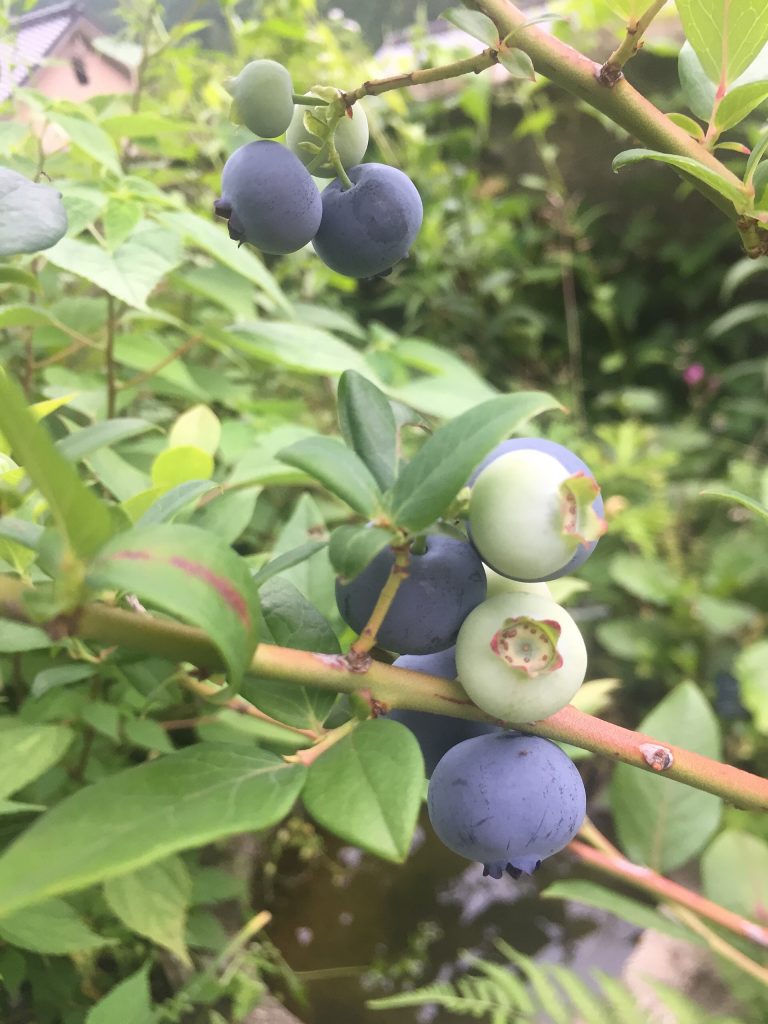
Neighbors love to share their produce, and often the majority of the produce we eat is locally-grown, gifted by various members of the community.
Not everyone in the countryside is a farmer, but the majority keep a garden. Although we are still learning, we are starting to grow our own food, too.
Last year the majority of our tomatoes and herbs came from our front yard!
We’ve also grown eggplant, cucumbers, snap peas, and so on. Pictured are blueberries from our garden last summer.
In addition to the bounty from our garden and from the generosity of neighbors, we sometimes purchase food from locals. For example, each week we buy 10 fresh eggs from a neighbor down the road. We also purchase apples in the autumn from a local orchard for pies.
I love being able to see where our produce is coming from, and knowing that it has been grown using fewer (if any) chemicals and pesticides.
The flavor of home-grown, organic produce is also so much better than the store!
Community
Many villages make an effort to organize meet up events for locals.
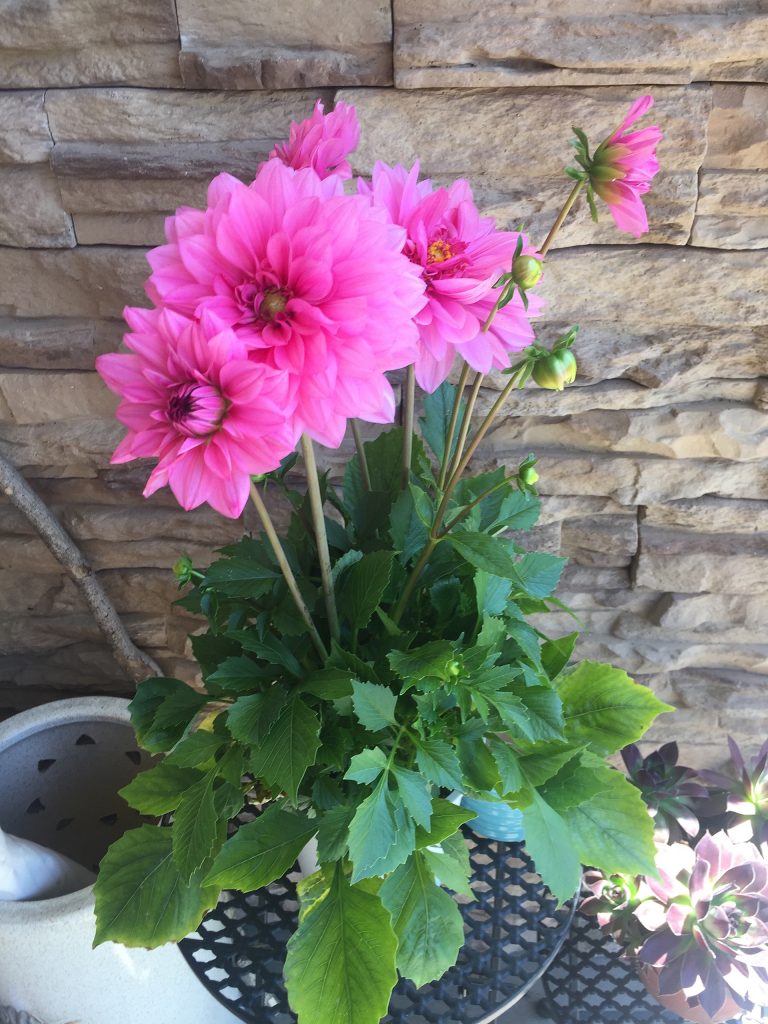
Our town features a community cafe once a month, where residents gather for coffee, toast, and eggs, and catch up with each-other.
It costs just 100 yen for a breakfast (about 1$)!
The tables feature flower arrangements from the garden of a different local every month. Last year, they featured dahlia like these (pictured).
The village also holds festivals every year, and the radio shares announcements about the schedules of these events.
Festivals often revolve around agriculture, or the local Buddhist shrine. Other festivals are music or sports-themed.
Being a resident also comes with responsibilities. A few times a year, one family member is “expected” to assist with public cleaning (removing fallen branches from gutters, cutting weeds, etc.).
In addition, one family member is expected to manage the main festival. Villages rotate which family carries out this task. While my husband participates in the community cleaning, he and I do not participate with events related to the shrine.
Small towns certainly have downsides – gossip gets around quickly!
However, perhaps my favorite aspect of the rural community is that it is so friendly. When we lived in Tokyo, few people would make eye-contact or strike up a conversation.
Here, people know your name, nod politely when they drive past, and greet you when meeting face-to-face. Neighbors visit spontaneously for a chat, or even come bearing small gifts.
It is this old-fashioned neighborliness that is the heart of rural Japan.
Do you have any questions about country life?
Leave a comment below!
Photo credits: (c) theharunafamily.com



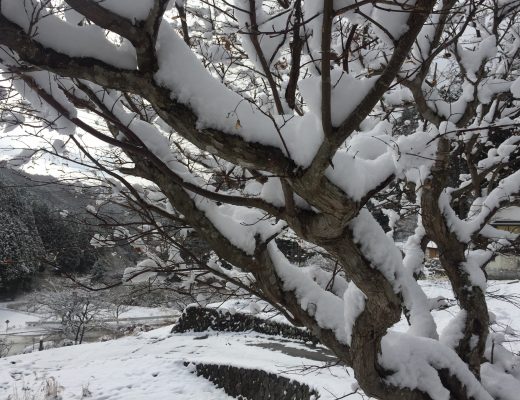

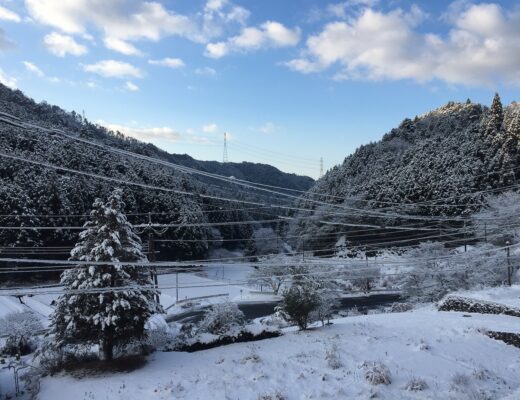
No Comments